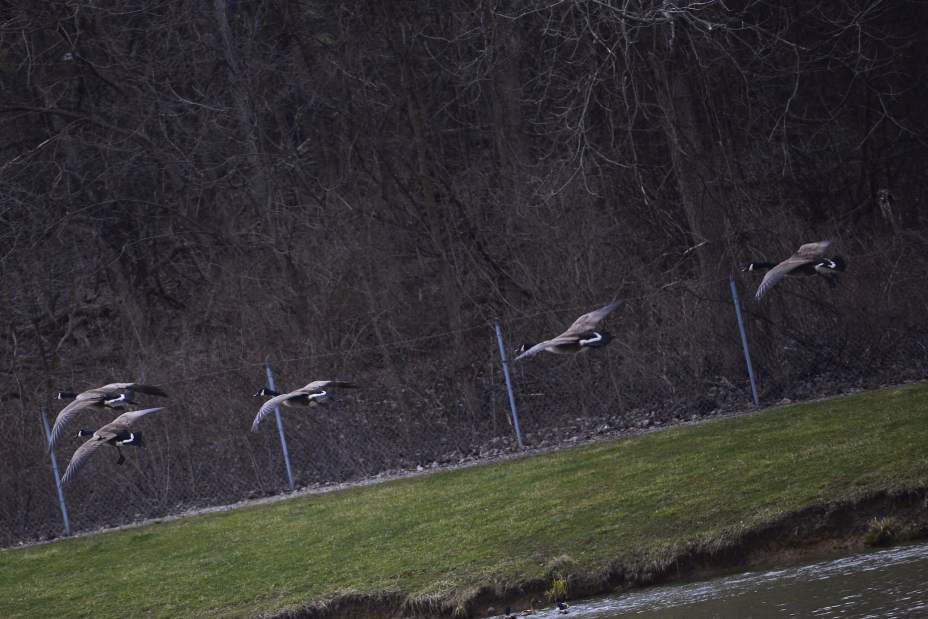North Huntingdon uses wildlife game control contractor for geese patrol
If there is one thing wildlife management professionals know about controlling the resident Canada geese population, it's that one method alone won't keep them out of a pond or lake or the local golf course.
“There's nothing simple about it. It's not a ‘one and done' thing when it comes to getting Canada geese to relocate,” said Brandon Bowen of Gibsonia, owner of Geese Police of Western Pennsylvania, a seven-county franchise encompassing Allegheny, Armstrong, Beaver, Butler, Washington and Westmoreland.
It can take six to eight weeks to get a handle on the problem until the birds migrate elsewhere, he said.
Geese Police is one of an estimated 440 state-licensed nuisance wildlife control operators, including about 44 in Allegheny, Armstrong, Fayette and Westmoreland counties, according to a Penn State Extension agency website. Operator permits are required for anyone to take, harass, transport, release or dispatch wildlife, the Pennsylvania Game Commission said. Adult geese, their nests, eggs and young goslings cannot be harmed, without a permit from the U.S. Fish & Wildlife Service and the Game Commission.
North Huntingdon used to have its own employees deal with the geese at Indian Lake Park, but that proved to be time-consuming, said township manager John Shepherd.
“It was more manageable for us to hire a contractor who specializes in wildlife game control,” he said.
Crespo's Wildlife Management Solutions, a Johnstown-area firm owned by Larry Crespo, manages goose-control services for North Huntingdon at Indian Lake Park.
Crespo believes in a three-phase approach.
First, people have to stop feeding the geese. Second, eggs are treated with an oil-like substance — called addling — to stop the embryo from developing. The third step is to harass the geese until they leave the water, which can be done by using pyrotechnics and dogs — particularly border collies — ferried in boats or kayaks.
Removing the nests or fencing off the shoreline is ineffective, Crespo said. Coyote decoys or scarecrows are only temporarily effective; eventually the geese realize the “predator” never moves.
Western Pennsylvania has become home to so many geese, Crespo said, because the region has what they love.
“If you have water and grass, you have geese. They are feeding on the grass and use the water for safety,” said Crespo, who has owned his business for 10 years and been in wildlife management for more than 20.
The biggest complaint is the waste geese produce.
“Imagine having 20 birds around a pond,” Crespo said. “All they do is loaf, eat and poop.”
Joe Napsha is a Tribune-Review staff writer. Reach him at 724-836-5252 or jnapsha@tribweb.com.









